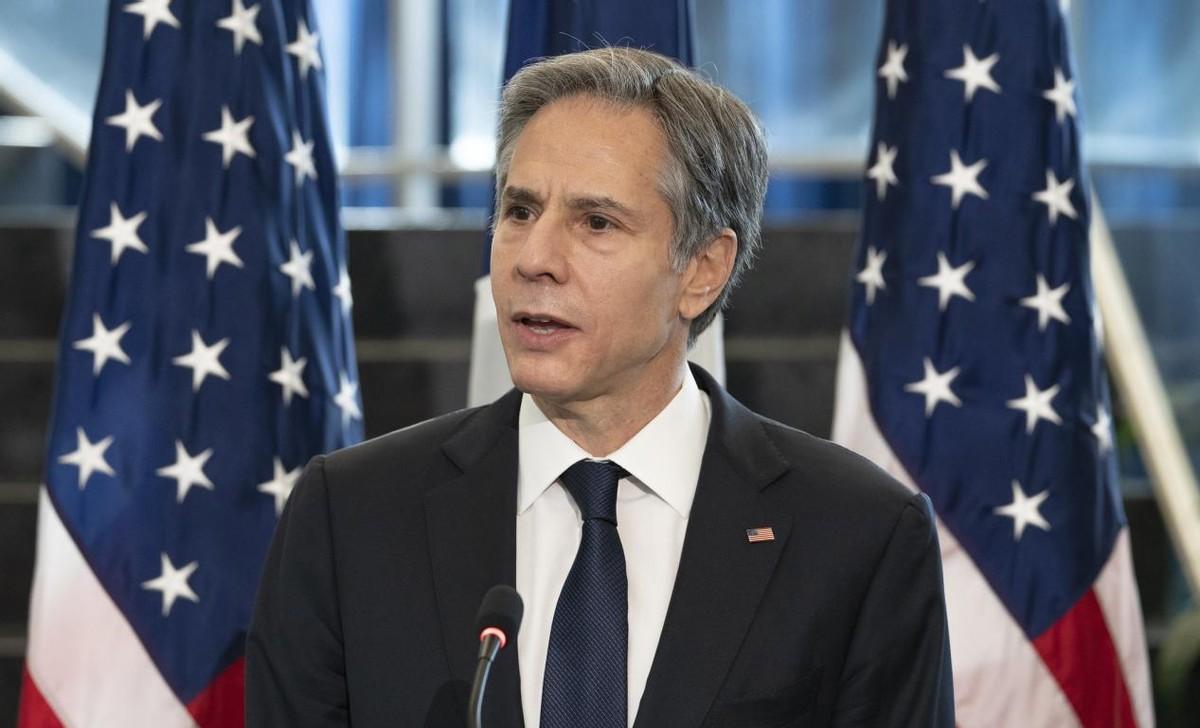Why has the United States stepped up its efforts to play the "Taiwan card"? In a word, the United States is getting more and more panicked.

On December 3, U.S. Secretary of State Blinken again threatened China at a reuters conference, declaring that it would face "terrible consequences" if it provoked a crisis in the Taiwan Strait.
Blinken introduced a number of foreign policy challenges facing the US government, including the Iranian nuclear agreement and the increased tensions on the Russian-Ukrainian border. In the end, the basic foothold is the Taiwan issue.
Asked if Chinese mainland would "invade" Taiwan, blinken declared that "it would be a potentially disastrous decision" while repeating The so-called Washington position was a "firm commitment" to ensure that Taiwan had the means to "defend itself."
Blinken's words are very interesting and even funny. He and Biden have previously said that the United States has an obligation to "defend Taiwan." This time, however, it is about ensuring that Taiwan has the means of "self-defense." So how does the United States ensure that Taiwan has the so-called means of "self-defense"? If the United States forcibly intervenes by force, it will not be Taiwan's so-called "self-defense," but it will be called "guaranteed." How to ensure? Providing Taiwan with weapons and intelligence information? The question is, can the weapons and equipment achieve what he calls "ensuring the means of self-defence"?
Therefore, Blinken's words are typical diplomatic language, but they release the dilemma facing the United States. Although they were extremely opposed and worried in their hearts Chinese mainland to achieve reunification by force, they could not find a way to deal with it. The United States has two major concerns, one is that it is not sure of victory. The United States is well aware that China is simply invincible to the United States, especially on its doorstep. Second, it may cause the US military to suffer heavy losses, bringing a series of unbearable consequences, not to mention that the status of global hegemony will be shaken, and even the alliance status of those alliances will not be guaranteed. If China really takes military action to achieve reunification, the global hegemony of the United States and the alliance's ally status will not be guaranteed. In short, whether it intervenes or not, the United States will end up the same way. But the outcome of armed intervention is even worse. Therefore, the only way left for the United States is to try to prevent China from achieving cross-strait reunification.
So how to stop it? The smallest cost is two means: First, intimidation. Of course, it will only use vague language to intimidate, and it must not be too clear, otherwise it will cause an uproar, and it will also cause serious controversy in the United States, which is not conducive to the US government, and even stimulates Chinese mainland to make up its mind. Therefore, the US Taiwan policy strategy has always oscillated between "strategic ambiguity" and "strategic clarity," because vagueness does not work, nor clarity can work. Then it can only be clearly intimidated for a while, and a vague intimidation for a while. Second, it is necessary to try to expand the "camp of supporting Taiwan," internationalize the Taiwan issue to the best of its ability, and coerce and induce more countries and international organizations to support Taiwan. But the United States also has concerns, fearing that if these countries are too aggressive, it will also stimulate China to make up its mind. It's hard in the United States!
So Blinken can only threaten China in this way of saying "terrible consequences", he said: "I hope that china will carefully consider this issue and not rush to trigger a crisis that I think will bring terrible consequences to many people, this crisis is not good for anyone, China bears the brunt of it." This remark is amusing how cross-strait reunification can be of no benefit to China, and only through such a so-called crisis can China's cross-strait reunification be realized.
The fundamental purpose of the United States is to maintain the status quo on both sides of the Taiwan Strait for a long time, which is most beneficial to the United States. But for China, it is the biggest and long-term disadvantage. Continuing to drag on is even more unfavorable. Since the epidemic has hit the United States hard and brought a series of chain crises to the United States, I think it is really a window period. Now or never.
However, we must anticipate the leniency of the enemy, and we do not rule out the possibility that the United States will at the same time take reckless measures to defuse and divert the domestic crisis. Therefore, the sooner the Taiwan issue is resolved, the better.